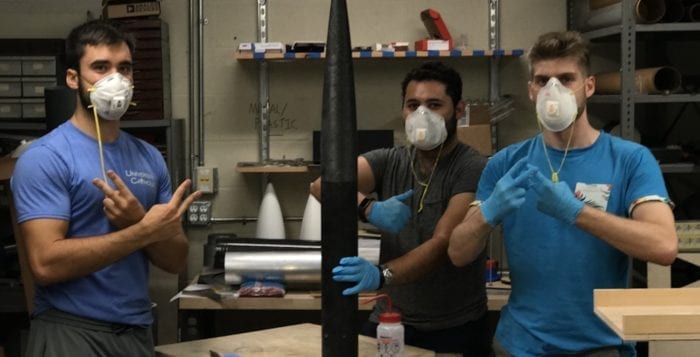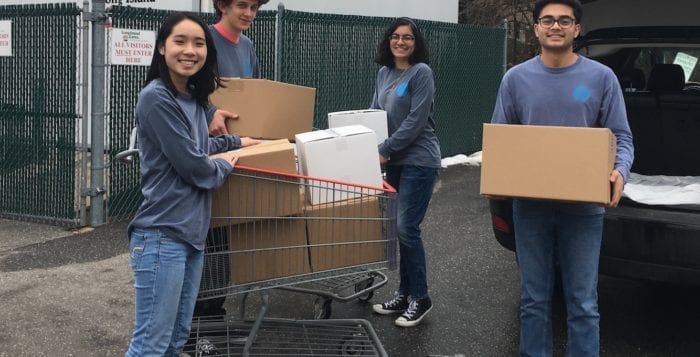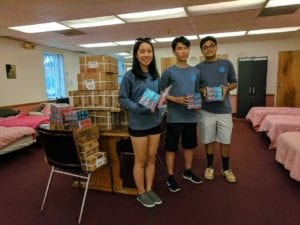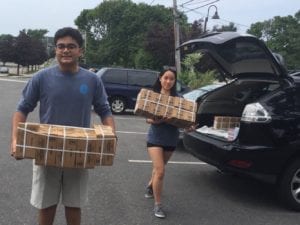Former Ward Melville High School graduates are finding out how valuable past connections are while they keep their eyes on the sky.
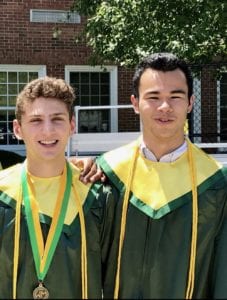
When Joshua Farahzad, a 2017 Ward Melville graduate, decided to give building a rocket a try, he began to solicit college and graduate students from around the U.S. and Canada for his team, which he called Operation Space. Along the way, fellow 2017 Ward Melville grads Hugh Ferguson and Brandon Cea joined the mission.
Farahzad, who is currently a sophomore at Duke University majoring in electrical engineering and economics, led a group of 40 college and graduate students in building two hypersonic rockets last summer. While many colleges have groups of students trying to do the same, Farahzad set out to assemble a group from various universities by emailing every college in the U.S. and Canada to work on a rocket remotely, learning the art of collaboration along the way.
After receiving resumes from fellow rocket enthusiasts, he and Operation Space team members remotely designed and built a rocket that is capable of reaching Mach 6-plus speeds, which is six times the speed of sound. Farahzad said the group is planning its first launch in late May at Spaceport America in New Mexico, and the goal is to break the student altitude record of 330,000 feet to reach the Kármán line, recognized as the border between Earth’s atmosphere and outer space.
Farahzad said Operation Space, in a way, took root in Ward Melville when he was in teacher Bob Spira’s Advanced Placement physics class during his junior year. Spira showed the class “October Sky,” a movie about students who try to build rockets. As a part of the final project, the students built one themselves.
“I remember really, really loving that,” he said. “I never did it before.”
Farahzad said he knew he wanted to include Ferguson, who while in high school started the nonprofit Mission Toothbrush with him. The group, which is still run by Ward Melville students, collects oral care products for those in need. Later into the rocket project, during a trip home Farahzad said he was talking to Cea, and he realized how valuable his friend, who is a West Point cadet, would be to the plan.
The Duke student said after planning remotely with other Operation Space members, they managed to prefabricate electronics at Rutgers University in New Jersey and structures at Vanderbilt University in Nashville, Tennessee, which is also where the students finally met in the summer of 2018.
“We never met each other before,” Farahzad said. “We had been working on it for less than two months. We tried to piece it all together at Vanderbilt over a course of week. Some things worked, some things didn’t work.”
Farazad said the group decided to build two rockets in case one got damaged. The rockets were shipped to Princeton University in New Jersey where they will be housed until take off.
Ferguson said he was happy when Farahzad, one of the first people he met when he moved to the Three Village school district, approached him about the project. He said their experience with Mission Toothbrush provided a solid foundation to work on future projects.
Ferguson said they learned that when you have an idea you just have to jump in, and it’s important for young people to follow their interests no matter what their personality or skill set.
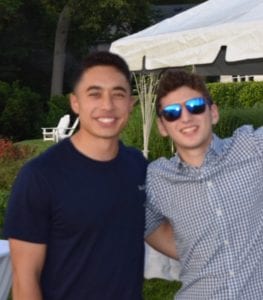
“It has taught me that do things you’ll be the most interested in and most fulfilled in, and because of that, I think you’ll do your best work, and it will be the best for your personal growth as well as be the best for the cause,” Ferguson said.
Now a sophomore at Northeastern University studying computer science and economics, Ferguson has helped Farahzad with recruiting, creating a business plan, and working on the web side of things. He said the project, and how quickly the rocket was built, reminds him of hackathons where students create an app or computer program in 24 to 48 hours. He added having a focused idea and proper planning is the key, and he also realizes how important a network is when it comes to working on a project of this size.
“Your network is much bigger than you think, probably better than you think,” he said. “If you really put the effort in, I think you know a lot more people than you think you do or who can help you, at least.”
As for the connection with Cea, Farahzad learned that his former classmate founded the West Point Space Engineering and Applied Research Program, an interdisciplinary team focused on enabling the next generation of space-capable leaders. Cea says for their projects the team can source BKNO3, an explosive compound, which cannot be procured or tested by civilian universities. Farahzad said Cea partnering with Operation Space allows them to get the explosive material they need for their rocket.
The West Point cadet, who describes Farahzad as inspirational, is happy to be working with his fellow classmate and is looking forward to the launch day.
“While it would be the crowning achievement of most students, it’s just the first step of an exciting partnership between a couple of Ward Melville alumni,” he said. “The future lies in space, and the best shot we have is through the building of the civilian-military relations. I don’t know what problems we’ll want to tackle next, but we can be content in the fact that it hopefully won’t be rocket science, and if it is, we already know how that’s going to go.”
Farahzad is looking forward to launch day too and said while a date has not been scheduled yet, the second rocket will be launched at a later date.
“I’m just happy to get to launch and see this whole thing, which feels very abstract, become real,” he said. “As long as everyone is safe, whatever happens after we hit the button will be a bonus.”
For more information about Operation Space, visit operationspace.org.

